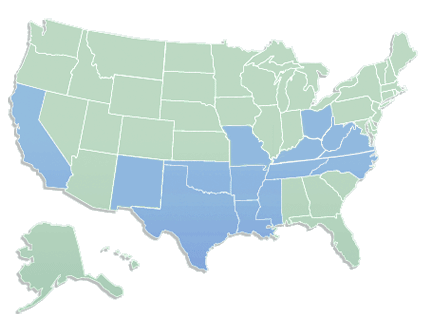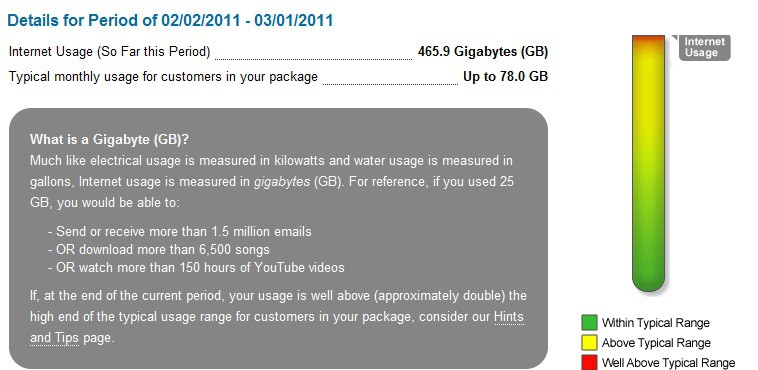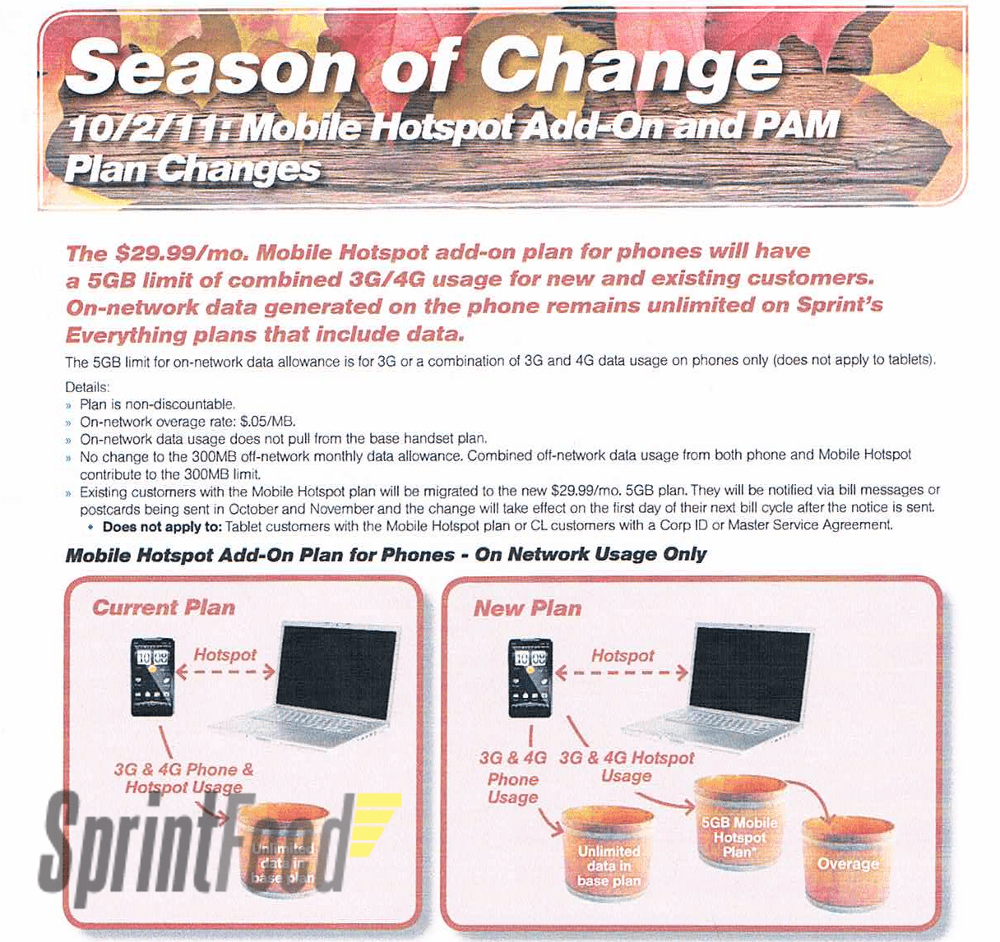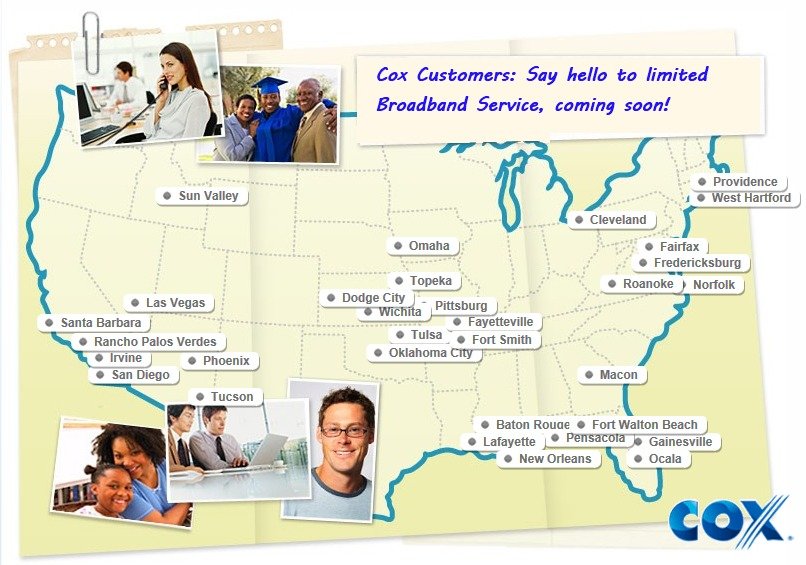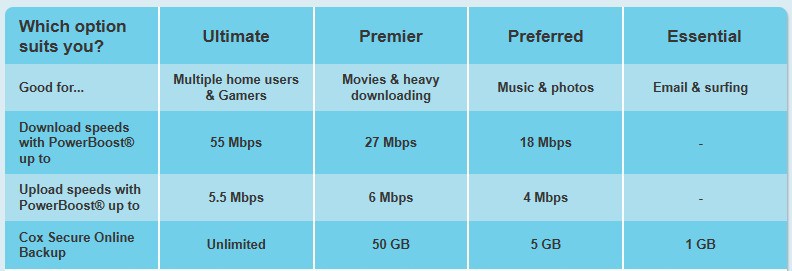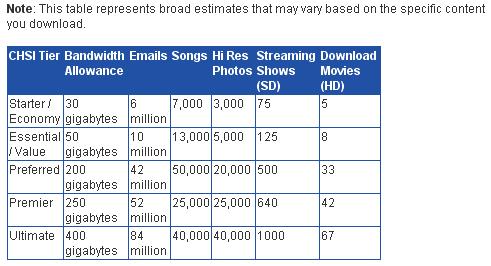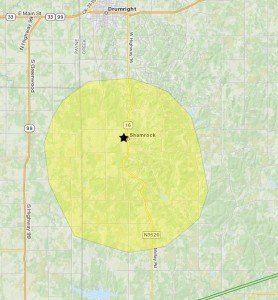 Suddenlink will introduce an Internet Overcharging scheme beginning with their customers in Amarillo, Tex. Oct. 3rd, according to a company document obtained by Stop the Cap! But the new usage cap and overlimit fee scheme will not be limited to Texas. The company’s internal memo notes the new limits will eventually be imposed on customers nationwide, and incredibly, the cable operator claims it will make their Internet service better:
Suddenlink will introduce an Internet Overcharging scheme beginning with their customers in Amarillo, Tex. Oct. 3rd, according to a company document obtained by Stop the Cap! But the new usage cap and overlimit fee scheme will not be limited to Texas. The company’s internal memo notes the new limits will eventually be imposed on customers nationwide, and incredibly, the cable operator claims it will make their Internet service better:
Early next month, October 2011, Suddenlink will notify residential (non-business) Internet customers in Amarillo, Texas, of a new usage allowance plan (AP) that is designed to further enhance their Internet experience.
This allowance plan will be introduced to other residential Internet customers, in other Suddenlink communities, in the following weeks and months.
An introductory letter will be mailed to Suddenlink residential Internet customers, when our allowance plan goes into effect in their community. The introductory letter to Amarillo customers will be mailed on or about October 3, 2011.
In addition to the introductory letter noted above, we will launch a new Web page on or about October 3, 2011, at suddenlink.com/allowanceplan.
This new page will provide additional information about the allowance plan in the form of frequently asked questions (FAQs).
On the first instance of exceeding the limit, the customer’s Internet service will be suspended until the customer reads and agrees to a web notification message that includes an understanding that on the fourth instance of going over their usage cap, customers will be billed $10 for every 50GB increment that exceeds their allowance, whether it is by 1MB or 40GB. That pricing is identical to AT&T’s usage cap overlimit fee.
Amarillo residents already pay $55 a month for 15Mbps standalone broadband service from Suddenlink.
Stop the Cap! reached out twice today to Suddenlink officials to get their reasons for implementing the usage allowance program, what the specific allowances might be, and when the usage caps will reach markets beyond Amarillo. We have still not heard back from them as we “go to press” but will update the piece if and when we do receive their comments.
Suddenlink’s employees are being trained on how to handle the inevitable complaints when customers discover their bills have suddenly increased. Their employee FAQ:
Q. I only went over my allowance by 1 gigabyte, but I was still charged $10. I thought I would not be charged $10 until I was 50 gigabytes over my allowance. What happened?
Of the very few customers who go over their monthly allowance, we have found that most go over by a significant amount. Accordingly, to make this process as fair and simple as possible on all customers, we do not start charging until the third time someone goes over the allowance – and, once that happens, we automatically assign additional allowances to the account, in standard 50-gigabyte installments, at a standard price of $10 for each installment.
Customers can use all or some of that additional allowance, depending on their individual situations. What’s more, if they exceed the additional allowance of 50 gigabytes, another 50-gig allowance is automatically applied, again at the standard price of $10.
To help customers manage their Internet accounts, we have provided a way for them to monitor their monthly usage at Suddenlink.net.
• If you’re already registered at Suddenlink.net, log on, go to “My Account,” and then click the link for “My Internet Usage Summary.”
• If you’re not already registered at Suddenlink.net, visit that site, look toward the upper right corner for the log-in box and the link that reads “Don’t have an account? Sign up now!” Follow that link to a set of instructions on how to register your account, and then, when you’re finished, click the link for “My Internet Usage Summary.”Finally, we offer some tips at suddenlink.com/allowanceplan, about ways to keep usage within the monthly allowances we’ve established.
Q. Can I have fewer than 50 gigabytes or less than $10.00 applied to my account the next time I go over?
Not at this time. The 50-gigabyte installments and $10 per installment charges have been standardized in all areas where we’ve rolled out this allowance plan, to make the process as fair and simple as possible on all customers.
Q. I don’t recall being notified that this was starting in my area. When did that happen?
We mailed letters announcing this change to all customers in your area several weeks before the allowance plan was put into place. I’m sorry if you missed that letter, but rest assured, very few customers – less than 1 out of every 100 – go over their allowance. And for the very few customers who do go over their allowances, charges are waived the first couple of times.
Q. What gives Suddenlink the right to do this?
We occasionally make changes to our Internet services, consistent with our Residential Services Agreement, which is published on our website. This allowance plan is one of those changes.
If asked: To view our Residential Services Agreement, go to Suddenlink.com, and look for a link near the bottom of the page titled, “Terms & Policies.” Click on that link and then look for another link titled, “Residential Services Agreement.” Click on that link and then scroll down the page until you see the sections related to Internet service, such as Section 46.
Suddenlink’s new Internet Overcharging website is not yet active, so we are unsure exactly what plan limits will be, but Suddenlink has been no stranger to usage caps. The company introduced a usage meter in several markets in the summer of 2009, and used to claim usage limits were partly to handle traffic loads on a limited number of cable systems that were in the process of upgrading. Once the upgrades were complete, the caps were supposed to be relaxed or retired.
Then, Suddenlink president and CEO Jerry Kent appeared on CNBC last September to announce that people don’t realize the days of system upgrades are over and it was time to rake in the profits:
“I think one of the things people don’t realize [relates to] the question of capital intensity and having to keep spending to keep up with capacity,” Kent said. “Those days are basically over, and you are seeing significant free cash flow generated from the cable operators as our capital expenditures continue to come down.”
Suddenlink’s journey to usage caps includes all the hallmarks we foretold in an article published on Stop the Cap! in 2009:
- Establish a foundation for usage caps. In their 2009 FAQ, Suddenlink conflated broadband usage with electricity: “What is “Internet usage”? Much like electric usage is measured in kilowatts, and water usage is measured in gallons, Internet usage is measured in gigabytes (GB).”
- Establish a ‘pulled from the air’ number of gigabytes (which often conveniently later becomes your usage allowance) and then tell subscribers what they can do with that. In Humboldt County, Calif., in March 2011, Suddenlink began telling “heavy users” what other customers were doing with what the company deemed a more appropriate, average amount of Internet service. Suddenlink also told customers the Internet service they were providing was for “entertainment only.”
- Tell customers such tools are actually for their benefit. See above.
- Lie to customers when a usage meter suddenly shows up or terms and conditions are quietly changed to support an Internet Overcharging scheme. In 2009, Suddenlink introduced a usage meter but tried to reassure customers, telling them: “Does Suddenlink plan to set a maximum usage allowance for its Internet customers, like other companies are doing? Do you plan to charge extra if a customer’s usage is too high? Those steps are not part of our current plan. Our only goal at this time is to help the few customers whose usage is well above (two to three times higher than) the typical range to identify the reasons for that high usage and take steps to protect and secure their computers and accounts.”
Now usage caps will protect and enhance Suddenlink’s profits on Internet service. Remarkably, Suddenlink put itself in the “predicament” of facing increased customer demand of the Internet through its own marketing. The company’s website heavily promotes its bandwidth-heavy Suddenlink2GO™ service to “watch TV online anytime, anywhere in the U.S. on any computer for FREE when you subscribe!”
But “free” becomes $10 for every 50GB if you watch too much.
How to Get Unlimited Back: If you are a Suddenlink residential customer who does not want to face restricted-use Internet, you can avoid the limits by switching to Business Class service, which will not have caps. Unfortunately, pricing information was not immediately available to us. One customer in Lubbock noted he paid $69 a month for 6Mbps Business Class service and $107 a month for 107Mbps residential service, so expect to pay comparatively more for lower speed service.


 Subscribe
Subscribe